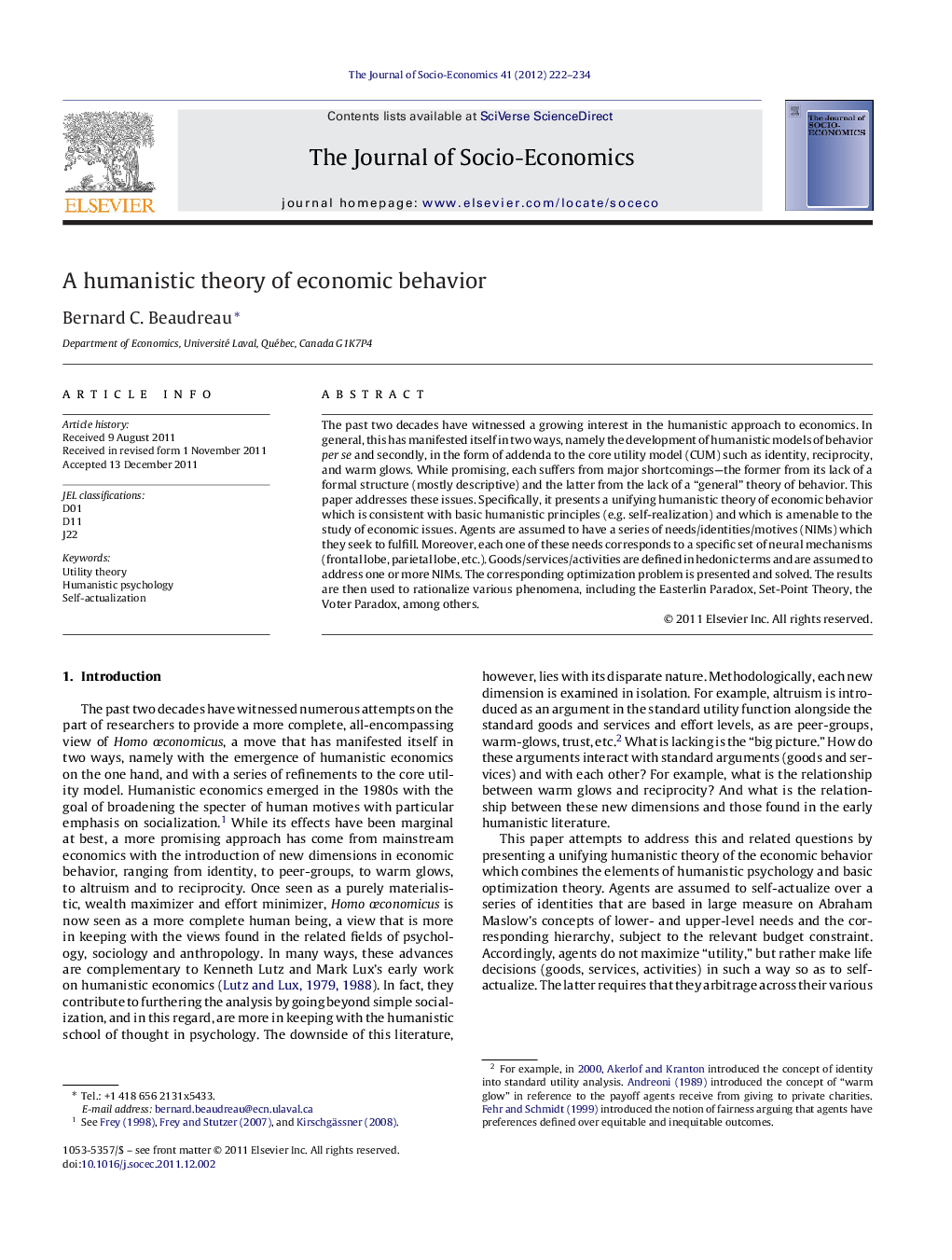| کد مقاله | کد نشریه | سال انتشار | مقاله انگلیسی | نسخه تمام متن |
|---|---|---|---|---|
| 970044 | 1479541 | 2012 | 13 صفحه PDF | دانلود رایگان |

The past two decades have witnessed a growing interest in the humanistic approach to economics. In general, this has manifested itself in two ways, namely the development of humanistic models of behavior per se and secondly, in the form of addenda to the core utility model (CUM) such as identity, reciprocity, and warm glows. While promising, each suffers from major shortcomings—the former from its lack of a formal structure (mostly descriptive) and the latter from the lack of a “general” theory of behavior. This paper addresses these issues. Specifically, it presents a unifying humanistic theory of economic behavior which is consistent with basic humanistic principles (e.g. self-realization) and which is amenable to the study of economic issues. Agents are assumed to have a series of needs/identities/motives (NIMs) which they seek to fulfill. Moreover, each one of these needs corresponds to a specific set of neural mechanisms (frontal lobe, parietal lobe, etc.). Goods/services/activities are defined in hedonic terms and are assumed to address one or more NIMs. The corresponding optimization problem is presented and solved. The results are then used to rationalize various phenomena, including the Easterlin Paradox, Set-Point Theory, the Voter Paradox, among others.
Journal: The Journal of Socio-Economics - Volume 41, Issue 2, April 2012, Pages 222–234